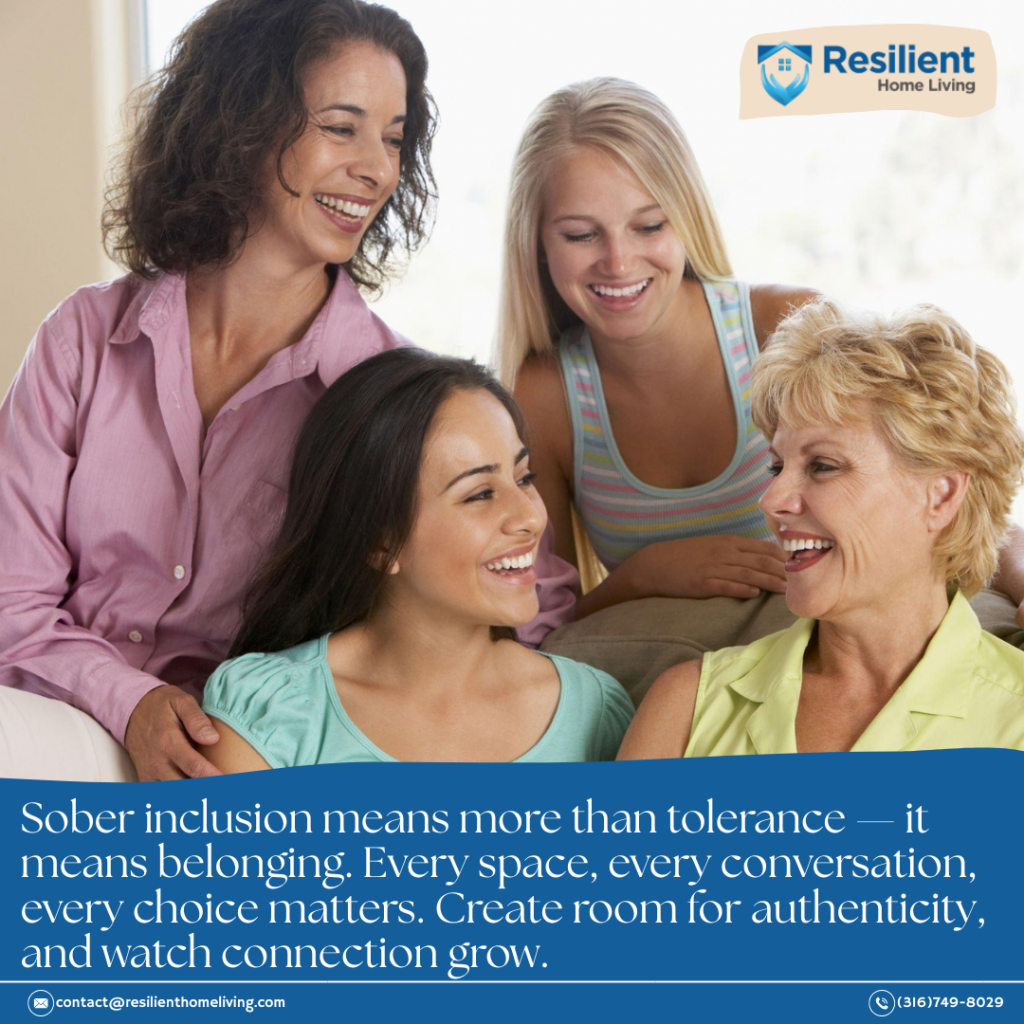Creating a Culture Where Sobriety Belongs
Sobriety is often seen as something personal — a quiet, inward journey of healing and growth. But in reality, it’s also deeply social. How we talk about sobriety, support it, and make space for it in our communities shapes whether people feel safe enough to live authentically.
“Advocacy for sober inclusion” means building a world where people in recovery, or those choosing to live substance-free, are respected, supported, and included — not questioned, isolated, or stigmatized.
It’s about moving beyond tolerance toward true belonging.
What Does Sober Inclusion Mean?
Sober inclusion is about normalizing and celebrating alcohol-free and substance-free lifestyles — without shame or pressure to conform.
In practical terms, it looks like:
- Hosting social events that don’t revolve around alcohol.
- Offering mocktail options at parties and restaurants.
- Respecting when someone declines a drink — without interrogation.
- Creating work and community spaces where sobriety is seen and supported.
When inclusion is the norm, sobriety isn’t a label — it’s just one part of someone’s identity.
Why Sober Inclusion Matters
There’s a misconception that sobriety means “missing out.” In truth, what many sober individuals miss most is acceptance.
The pressure to drink or “just have one” is deeply ingrained in many cultures. People often assume that declining alcohol means something must be wrong — when really, it can be a conscious, empowered choice.
Here’s why sober inclusion matters:
- It Reduces Stigma
When people feel they must hide their sobriety, shame thrives. Normalizing sober choices helps remove the stigma tied to addiction, recovery, or abstinence. - It Supports Mental Health
Being constantly surrounded by triggers or pressure can wear down someone’s emotional wellbeing. Inclusive environments reduce anxiety and build safety. - It Encourages Honest Conversations
When people can openly share their choices, it deepens trust and authenticity in relationships — whether in friendships, workplaces, or communities. - It Benefits Everyone
Sober inclusion doesn’t just support people in recovery — it promotes wellness, mindfulness, and respect across the board.
How to Advocate for Sober Inclusion
You don’t have to lead a campaign or host a conference (though those help!). Advocacy starts with awareness and small, consistent actions.
Here’s how anyone can be a voice for sober inclusion:
1. Start With Empathy
If someone declines a drink or mentions sobriety, meet it with respect — not curiosity or judgment.
A simple “That’s awesome — good for you!” goes a long way. It tells them their choice is valid and valued.
2. Rethink Social Norms
From happy hours to holidays, alcohol is woven into many traditions. Challenge the idea that it has to be the centerpiece.
Try hosting alcohol-free gatherings — brunches, hikes, creative workshops, or coffee nights. You’ll be surprised at how connection deepens without substances.
3. Be an Ally at Work
If you’re in a leadership position, think about how workplace culture can impact those in recovery.
Offer:
- Inclusive event options (not just bar nights).
- HR support for recovery-friendly policies.
- Educational sessions about addiction awareness.
Small steps create lasting change.
4. Use Your Voice (and Platform)
Whether it’s social media, writing, or conversations with friends, use your influence to promote awareness.
Share resources, celebrate sober milestones, and highlight positive stories. You never know who’s listening — or who might need that encouragement.
5. Support Sober Spaces and Businesses
Attend sober-friendly events, support cafes or venues that serve mocktails, or collaborate with recovery-focused organizations.
Advocacy isn’t just words — it’s where you spend your time and energy.
6. Lead by Example
You don’t need to be in recovery to support sober inclusion. Choosing not to pressure others, making thoughtful event choices, or speaking up when someone’s sobriety is dismissed — these small acts redefine culture.
Inclusivity begins when one person chooses awareness over assumption.
The Ripple Effect of Advocacy
Every act of sober advocacy — no matter how small — creates ripples.
When someone feels included, they’re more likely to stay committed to their recovery, share their story, and extend compassion to others. That ripple becomes a wave of cultural change — one that redefines what it means to celebrate life fully, consciously, and freely.
In a world that glorifies excess, choosing awareness is revolutionary.
You don’t have to change the whole system — just start with your corner of it.

